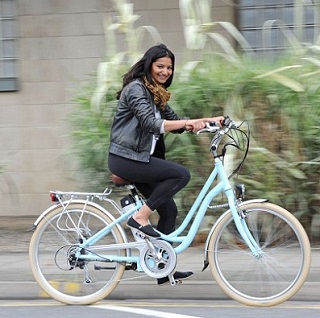Electric Bikes: An Important Tool in Reducing Transportation’s Carbon Footprint
Writing for SustainableBrands.com, Libby MacCarthy begins her article on electric bikes: Government-led initiatives designed to cut carbon emissions and reduce air pollution in cities, though well-intentioned, often come under fire from those who stand the most to gain from them —the public.
It’s ironic how true this is in general. The epitome of this may be how U.S. citizens consistently but unwittingly vote against their own best interests, and the 2016 presidential election really won the prize in that category.
In any case, the demand for e-bikes is skyrocketing. A good guess as to the reason would be a combination of an interest in environmental protect, coupled with pure fun. These things really are a blast, and the prices are falling at the same time.


I do much of my traveling around the city with a non-electric bike and shall continue to do so even though I am pushing 80. I suppose it’s fine if some people prefer electric bikes but really, when in good condition, the human body is capable of providing sufficient power. Also, the exercise is beneficial.
Craig,
Some cities can accommodate bicycles and other two-wheeled traffic with ease while others find cyclists incompatible with modern traffic conditions.
Let’s be honest, if the bicycle and certainly motorized two-wheel traffic were invented today, no regulatory authority would permit road use for safety reasons.
E-Bikes are fun for some and for a percentage of the population an excellent method of transport in cities with bike friendly infrastructure.
Seldom mentioned is most urban cyclists who use cycles for daily travel, not just recreation, would otherwise travel by public transport.
Public transport requires volume to remain viable, a consequence overlooked by most cycling advocates.